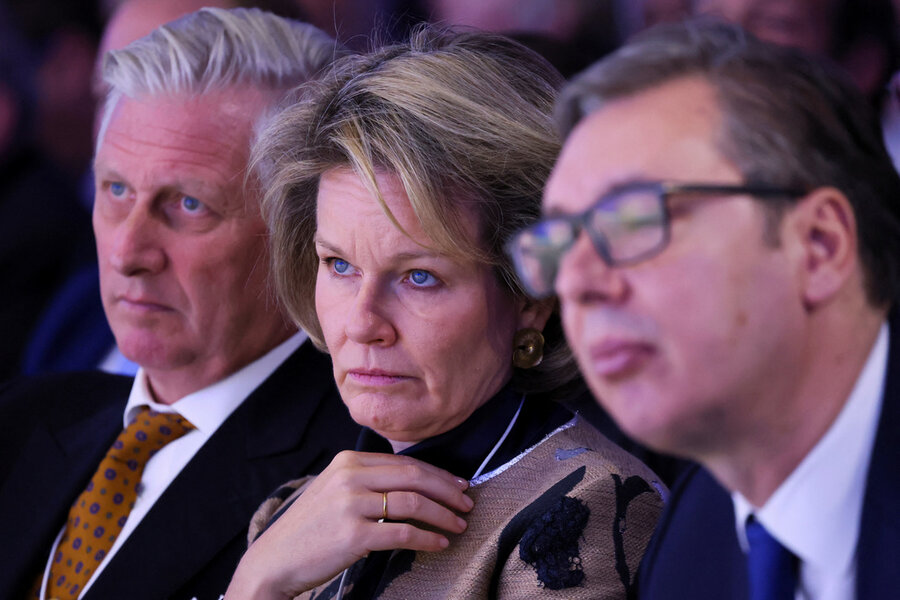The Davos search for trust
Loading...
Nearly 3,000 leaders in politics and big business are meeting once again this week in the Swiss alpine village of Davos for the World Economic Forum. The official theme is “Rebuilding Trust” – although networking really drives this wintry assemblage. The theme is hardly a new one to the Davos elite. According to global surveys, trust in major institutions or industries has been in steady decline except for one notable example – business.
In 21 countries, trust in business has risen from 48% in 2012 to 61%, according to a 2023 survey by the marketing firm Edelman. Polls in the United States paint an even finer picture. Sixty-five percent of Americans put “quite a lot of confidence” in small business – more trust than in the military, police, medical system, or organized religion, according to Gallup. Overall, public confidence in key institutions has fallen by nearly half since 1979, from 48% to 26% last year.
Among the more than 33 million small businesses in the U.S., many have learned that values such as credibility, transparency, and accountability are critical to maintaining customers and suppliers. “When you are consistent and stay true to these values, it fosters understanding and empathy with your customers,” wrote software entrepreneur René Lacerte in Fast Company magazine last year. “In turn, this strengthens the bonds of trust between you and your customer.”
While trust in small business has long been high, customer reviews on social media have helped keep owners in line. “A business’s reputation is like a delicate Jenga tower, where one wrong move can send it toppling,” wrote entrepreneur Jack Trent in AllBusiness.com.
An incentive for positive feedback online seems to be working. Applications for new small businesses in the U.S. surged last year, setting a record of 5.5 million. That would not have happened without the prospect of shared moral behavior between startups and those they serve.
Such news about American startups may be an important lesson for the elite leaders at Davos and elsewhere. “The truth is, we don’t know how people learn and transmit social trust at the micro-level,” wrote Kevin Vallier, a philosophy professor at Bowling Green State University, in the digital magazine Psyche.
The author of the 2020 book “Trust in a Polarized Age,” Dr. Vallier suggests that trust first be defined as that between individuals – or the kind found in small businesses. Then trust can then be scaled up “in generalized others,” or the institutions of society. Perhaps the Davos attendees keep returning to trust as a theme simply because the informality of the gathering itself seems so, well, entrepreneurial.







